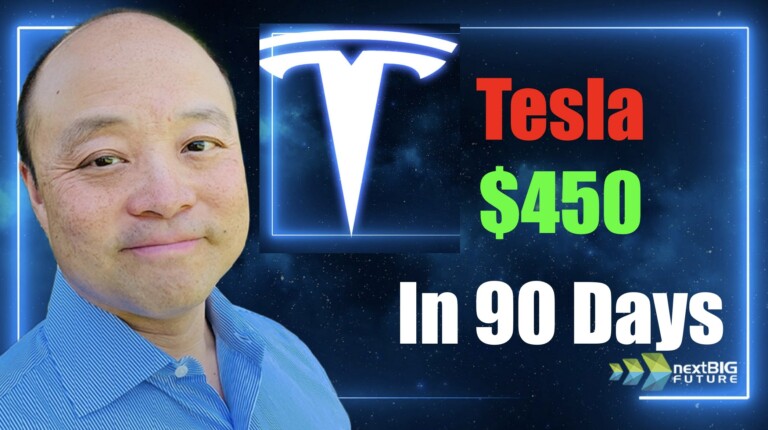Launch to the Stars in 2050 After 25 Years of SpaceX Starship | NextBigFuture.com
SpaceX has massively accelerated the development of space. Predicting the speed of space development requires predicting the financial future of SpaceX. This is because if trillions of dollars of profits each year can be used to increase space development then this will be far more than $2 billion/year of the NASA budget that is actually used to develop space and space technology.
SpaceX started launching Starlink satellites in 2019. There were only about 300 one hundred kilogram or heavier satellites in low earth orbit in 2018. There are now over 8000 and this is because of SpaceX launching 7000 Starlink satellites and a few hundreds satellites for other companies
SpaceX has launched 90% of all payloads into space in 2024. This is ten times more than the rest of the world combined. The rest of the world meaning all of the other countries like China and Russia.
SpaceX is also a profitable company and will become very profitable by offering Starlink services commercially with over $10 billion in revenue now with about 4-5 million customers.
SpaceX will also get a lot of military and government contracts. The Pentagon has increased its military satellite internet services budget from $900 million to $13 billion over the next five years. The vast majority of the military launch and military satellite business is going to SpaceX.
Starlink with the fully reusable super heavy Starship will launch 42,000 Gen 3 satellites with each having ten times the bandwidth of Starlink Gen 2 mini satellites.
This will be able to support 400 million to 1 billion global high speed internet customers and about 6 billion customers for direct to cellphone service.
The 42,000 satellite constellation can be deployed in 2026-2027. The full global customers could get sold, dishes deployed and new cellphones deployed by 2028-2029.
This will be over $1 trillion per year and the profits margins could be 90%.
SpaceX will grow global communications and internet and have other businesses. This will only increase in the 2030s and 2040s.
SpaceX will take over transoceanic package delivery from cargo planes.
SpaceX will get approvals for even more satellites and launch satellites for more than just communication. How much revenue and profit will this grow to by 2040? 2050?
What is beyond communication? There is energy from space based solar.
By 2030 there could be a few thousand SpaceX Starships and Super Heavy boosters and a hundred launch towers.
By 2040, 40,000 large cargo and passenger planes could be replaced with 20,000 SpaceX Starships for earth based transportation. The SpaceX starships would cost about $6 million each and would be reusable. The boosters could cost $24 million each. The large commercial jets cost $300 million each. The interplanetary fleet could be tens of thousands of Starships. The limitation would not be how many we could affordably build but deploying them for large enough use cases. The world fleet of 40,000 large planes costs $10 trillion over thirty years. 10,000 Starships would cost $60 billion. 10,000 Starships with boosters would cost $300 billion.
Ten thousand Super Heavy Starships flying twice per week into orbit could deliver one million payloads per year. Those payloads could be 300 tons with more advanced rocket engines. This would be 300 million tons. This would be about 100,000 times more than the payloads put into space now.
This level of payload means it would be trivial to launch massive construction into space to build giant solar sails or to accelerate testing and development of interstellar flight propulsion systems.
Terawatts of space based solar would be able to power massive laser pushed sail propulsion.
The development of space for the next 25 years will not be at the pace of the last 60 years. We have already increased payloads by ten to twenty times and this will increase 100,000 to 1 million times.
Brian Wang is a Futurist Thought Leader and a popular Science blogger with 1 million readers per month. His blog Nextbigfuture.com is ranked #1 Science News Blog. It covers many disruptive technology and trends including Space, Robotics, Artificial Intelligence, Medicine, Anti-aging Biotechnology, and Nanotechnology.
Known for identifying cutting edge technologies, he is currently a Co-Founder of a startup and fundraiser for high potential early-stage companies. He is the Head of Research for Allocations for deep technology investments and an Angel Investor at Space Angels.
A frequent speaker at corporations, he has been a TEDx speaker, a Singularity University speaker and guest at numerous interviews for radio and podcasts. He is open to public speaking and advising engagements.
Information contained on this page is provided by an independent third-party content provider. This website makes no warranties or representations in connection therewith. If you are affiliated with this page and would like it removed please contact editor @riverton.business







